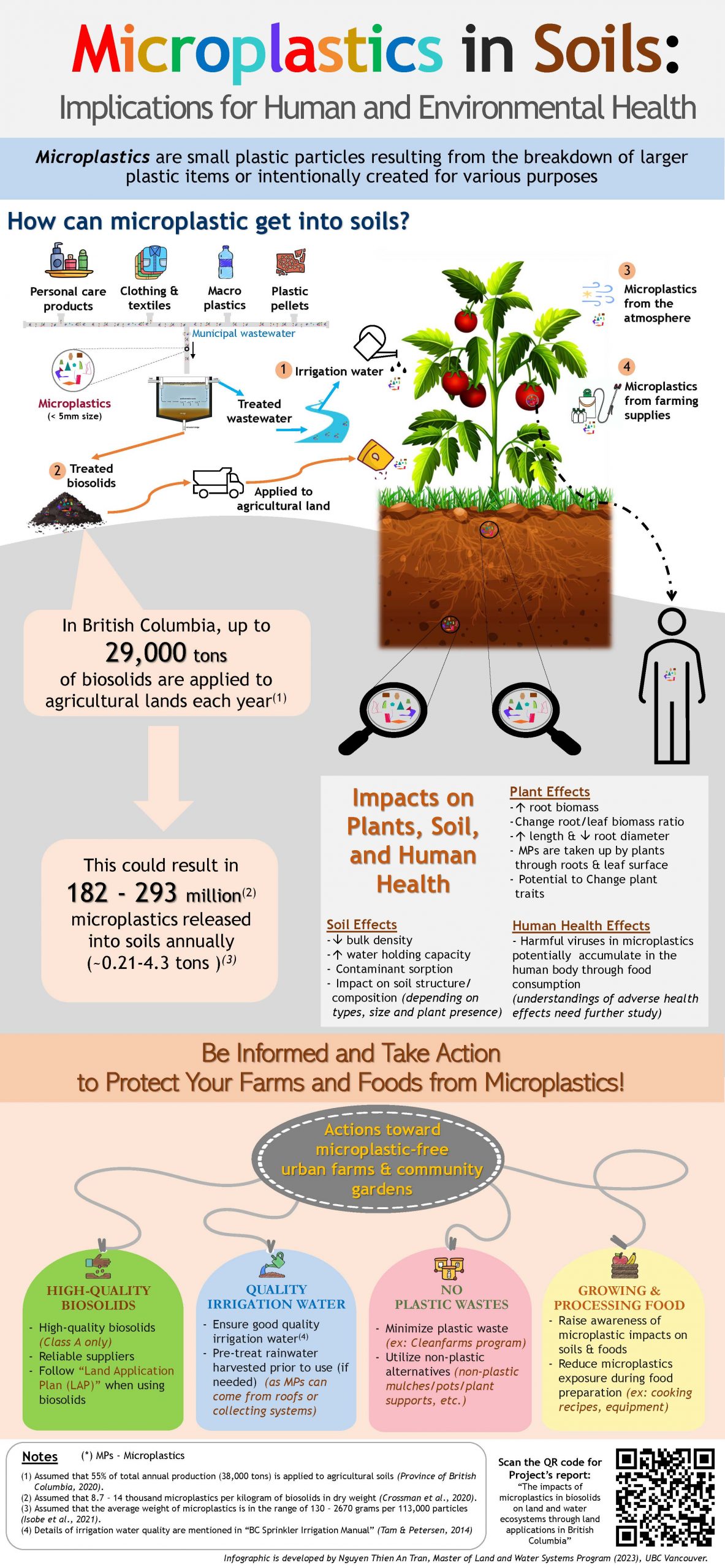The impacts of microplastics in biosolids on land and water ecosystems through land applications in British Columbia
Nguyen Thien An Tran, MLWS 2023
The study provides valuable insights into the sources, distribution, and potential impacts of microplastics when biosolids are applied to agricultural activities. The findings indicate that in British Columbia (BC), about 182 – 293 million particles of microplastic (equivalent to approximately 0.21 – 4.3 tons in weight) could be released into agricultural land each year through the application of 29,000 tons of biosolid annually.
The presence of a large number of microplastics in agricultural ecosystems has negative effects on soil quality, food security and human health. It alters the water retention capacity, soil microbial functions, and immobilization of essential nutrients for plant growth. Moreover, these microplastics can enter the food web, potentially endangering human health. Additionally, microplastics have extensive impacts on both aquatic and terrestrial ecosystems due to their slow degradation, residual effects, and physical-chemical conversion over time.
